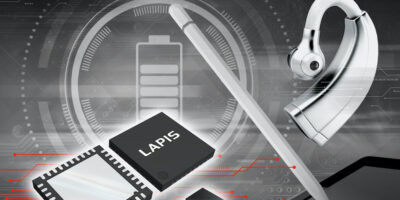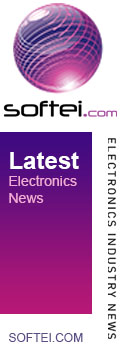Wireless power supply chipset needs no external MCU
Capable of providing up to 1W of wireless power for compact and streamlined wearable devices or for industrial smart, miniaturised and sealed end products, the Rohm Semiconductor’s ML7661 (transmitter) and ML7660 (receiver) incorporate a control circuit for transmission/reception.
By eliminating the need for an external MCU, the chipset is the industry’s smallest system size in the 1W class, says Rohm. It is suitable for wearables that require a large battery capacity and are designed to be worn for long periods of time, such as wristband blood pressure monitors, fitness trackers, smart watches and hearing aids. The adoption of the high 13.56MHz frequency band enables support for near field communication (NFC).
Providing wireless power and communication in a single chipset contributes to improved design flexibility in devices with rotating mechanisms that would normally be restricted by wired designs, explains Rohm. Typical examples are industrial equipment, PC cooling fans, and e-bike torque sensors.
Wireless power supply eliminates the need for a power cord, significantly improving safety during charging or sweating by increasing the waterproof, dustproof, and (electric) shockproof performance of sealed housings. However, although the Qi standard is widely used and can supply up to 15W, the system size which includes the chipset and antenna is also typically large, making it difficult to incorporate into wearable devices.
An evaluation kit is available for the 13.56MHz wireless power supply chipset. Rohm supports the configuration of charging systems that meet various customer requirements, for example, tools for individual user settings from a PC and documents related to antenna design and adjustment are available.
Samples are available now, with mass production scheduled for April 2022.
Rohm Semiconductor develops and manufactures a large product range from SiC diodes and MOSFETs, analogue ICs such as gate drivers and power management ICs to power transistors and diodes to passive components.
There are manufacturing plants in Japan, Korea, Malaysia, Thailand, the Philippines, and China. Lapis Technology (former OKI Semiconductor), SiCrystal and Kionix are companies of the Rohm Semiconductor Group. Rohm Semiconductor Europe has its head office near Dusseldorf in Germany, serving the EMEA region.




